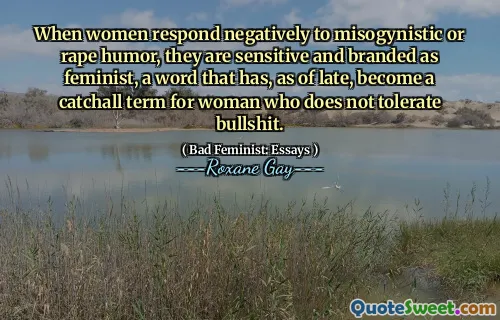It has been suggested, more than once, that if you don't believe in trigger warnings, you aren't respecting the experiences of rape and abuse survivors. It has been suggested, more than once, that trigger warnings are unnecessary coddling. It is an impossible debate. There is too much history lurking beneath the skin of too many people. Few are willing to consider the possibility that trigger warnings might be ineffective, impractical, and necessary for creating safe spaces all at once. The illusion of safety is as frustrating as it is powerful.
Roxane Gay discusses the complex debate surrounding trigger warnings for survivors of trauma, emphasizing that opinions on their necessity often clash. Some argue that dismissing trigger warnings shows a lack of respect for the experiences of victims of rape and abuse, while others see them as unnecessary and overly protective. This divide illustrates the deep historical and personal wounds that shape individuals' perspectives on the issue.
Gay points out that the conversation around trigger warnings is complicated by the different effects they may have. While they can create a sense of safety, some argue that their presence may also give a false sense of security. This duality highlights the challenge in finding common ground, as each side of the debate grapples with the weight of trauma histories and the desire for practical measures in support of mental health.






